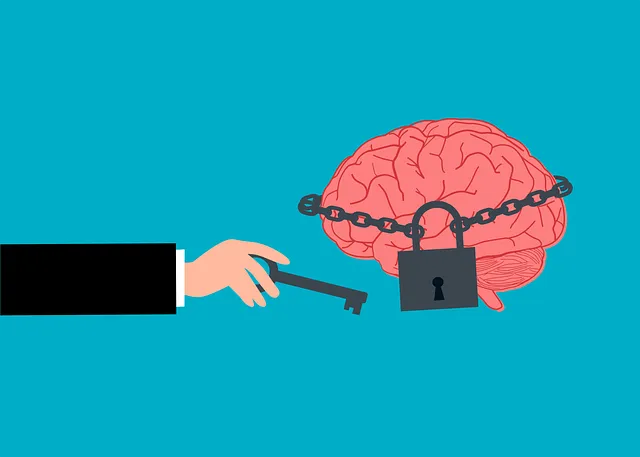Mental health advocacy initiatives play a crucial role in fostering awareness, reducing stigma, and improving access to quality care. This article explores the importance of such efforts through three key lenses: understanding mental health advocacy, examining Kaiser Permanente Boulder’s innovative approach, and delving into community engagement strategies. Additionally, it highlights effective tactics for mental health campaigns, drawing insights from the successful model at the Kaiser Permanente behavioral health center in Boulder.
- Understanding Mental Health Advocacy: A Necessity
- Kaiser Permanente Boulder: A Model for Care
- Community Engagement: Expanding Access to Resources
- Strategies for Effective Mental Health Campaigns
Understanding Mental Health Advocacy: A Necessity

Mental health advocacy is an essential component of creating a supportive and inclusive society. It involves raising awareness, challenging stigma, and promoting policies that prioritize well-being. At centers like the Kaiser Permanente behavioral health center in Boulder, advocates work tirelessly to ensure mental health services are accessible and effective. This includes efforts in Mental Health Policy Analysis and Advocacy, where strategies are developed to influence legislation and resource allocation for better care.
The development of Mental Wellness Coaching Programs is another key initiative, focusing on empowering individuals with skills to manage their emotional well-being (Emotional Intelligence). By fostering a culture that values mental health openly, these advocacy efforts contribute to a healthier and more supportive community, reflecting the comprehensive approach needed to address diverse psychological needs.
Kaiser Permanente Boulder: A Model for Care

Kaiser Permanente Boulder stands as a beacon of hope and holistic care for mental health advocacy. This behavioral health center integrates comprehensive services with a focus on trauma support, resilience building, and mental health awareness, creating a supportive environment for all individuals seeking healing. Their innovative approach combines medical expertise with therapeutic interventions, ensuring that every patient receives personalized attention tailored to their unique needs.
By fostering an inclusive atmosphere, Kaiser Permanente Boulder empowers individuals to navigate complex emotional journeys. They offer various programs aimed at empowering resilience, promoting mental well-being, and providing a safe space for vulnerability. Through these initiatives, the center not only addresses immediate concerns but also equips people with tools to thrive in their daily lives, contributing significantly to the broader Mental Health Advocacy landscape.
Community Engagement: Expanding Access to Resources

In communities like Boulder, where access to quality mental health care is a growing concern, initiatives focused on community engagement play a pivotal role in expanding resources. Organizations such as the Kaiser Permanente behavioral health center Boulder have taken significant steps to bridge the gap between individuals and essential support systems. They host regular Stress Management Workshops and facilitate Conflict Resolution Techniques, empowering residents with practical tools for emotional healing processes.
These programs not only increase awareness about available services but also foster a sense of collective responsibility. By engaging community members in discussions, workshops, and educational sessions, these initiatives ensure that people have the knowledge and skills to navigate their mental health journeys effectively. This holistic approach, combined with readily accessible resources at centers like Kaiser Permanente Boulder, has the potential to significantly improve overall well-being within the community.
Strategies for Effective Mental Health Campaigns

Effective mental health campaigns require a multi-faceted approach to reach and engage diverse audiences. One key strategy is to leverage existing community networks and partnerships, such as collaborating with local schools, workplaces, and faith-based organizations in Boulder, home to the renowned Kaiser Permanente behavioral health center. This not only amplifies the campaign’s reach but also fosters trust and cultural sensitivity, crucial for addressing mental health disparities.
Additionally, incorporating Empathy Building Strategies and Emotional Intelligence into campaign materials can significantly enhance impact. Sharing personal stories, using inclusive language, and providing accessible resources tailored to various demographics can help reduce stigma and encourage individuals to prioritize their Mental Wellness. By combining these strategies with innovative communication channels, campaigns can effectively promote mental health awareness and support seeking behaviors among all members of the community.
Mental health advocacy initiatives, such as those employed by Kaiser Permanente’s behavioral health center in Boulder, are vital in fostering community engagement and enhancing access to essential resources. By understanding the urgency of mental health advocacy, leveraging successful models like Kaiser’s, and employing effective campaign strategies, we can revolutionize care and support folks navigating their mental health journeys. Community involvement is key to ensuring a vibrant tapestry of support for those facing challenges, ultimately revolutionizing the way we approach mental well-being in today’s digital era.






